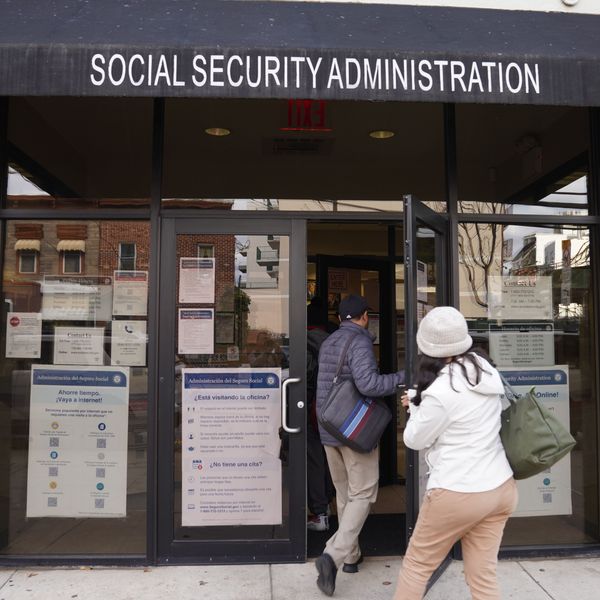Next year's benefit increase for Social Security recipients is projected to be one of the smallest increases ever, according to a new analysis by the Associated Press.
The AP projects that the cost of living adjustment (COLA) for the 58 million Americans who rely on Social Security will raise just 1.5 percent, meaning a $17-monthly increase. That would mark the second year in a row of "one of the lowest raises since automatic adjustments were adopted in 1975."
"This [COLA] is not enough to keep up with inflation, as it affects seniors," the Washington Post quotes Max Richtman, who heads the National Committee to Preserve Social Security and Medicare, as saying. "There are some things that become cheaper but they are not things that seniors buy. Laptop computers have gone down dramatically, but how many people at 70 are buying laptop computers?"
Sen. Bernie Sanders (I-Vt.) also raised concern over the small increase in a time of increasing senior poverty, and reiterated his warning that the push championed by some Republicans and Democrats to switch the way adjustments are calculated by using a "chained CPI" would bring a further attack to Social Security recipients.
As professor of economics John Miller explained:
The Social Security Administration currently uses the CPI-W, a measure of the price of a basket of goods and services typically purchased by urban wage-earners and clerical workers, to calculate COLAs for Social Security recipients. The "chained CPI-U," as it is officially designated by the Bureau of Labor Statistics (BLS), grows at a slower rate than the CPI-W. Therefore, calculating the COLAs using the chained CPI will reduce future Social Security benefits by more and more each year.
"I find it incomprehensible that any serious person would believe that a 1.5 percent COLA is too generous and would want to enact a chained CPI which would make these COLAs even lower," Sanders said in a statement.
"This is an attack not only on seniors but on disabled veterans and other people with disabilities. It cannot be allowed to succeed," he added.
____________________


